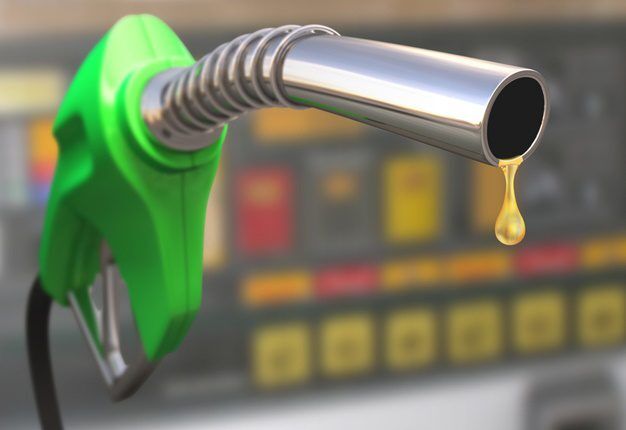
As reported by Addis Report, the Ethiopian government has implemented a substantial increase in retail fuel prices, marking one of the most significant adjustments in recent years. This change, which took effect overnight, has seen prices rise by as much as eight birr per liter.
Starting from October 8, 2024, the cost of a liter of gasoline has been set at 91 birr, while diesel prices have escalated to 90 birr. Just a day prior, consumers were paying 82.60 birr for a liter of gasoline and 83.74 birr for diesel before the clock struck 6:00 PM.
This recent adjustment in fuel pricing reflects a notable increase of 10.3% for gasoline and 7.8% for diesel. Furthermore, kerosene has also seen a significant rise of 7.8%, with its price now reaching 90.28 birr per liter.
A macroeconomist, who requested to remain unnamed while speaking to Addis Standard, expressed concerns regarding the recent increase in fuel prices, indicating that it may further aggravate the already elevated inflation levels.
He emphasized that there is a historical correlation between rising fuel prices and inflationary trends. The recent adjustments in fuel costs have also contributed to inflationary pressures in the economy.
The macroeconomist pointed out that fuel plays a vital role in influencing the non-food segment of the Consumer Price Index (CPI), which is an essential economic indicator released on a monthly basis.
The potential consequences on other commodities may exacerbate the already critical cost of living, he cautioned.
Recent data from the Ethiopian Statistical Service reveals that fuel, in conjunction with water and electricity, accounts for 16.8% of the non-food segment of the Consumer Price Index (CPI).
Furthermore, the report highlighted that the year-on-year inflation rate reached 17.2% in August 2024, with non-food inflation recorded at 14.7% and food inflation at 18.8%. Consumers have voiced their apprehensions regarding the recent surge in fuel prices.
Yohannes Daniel, a driver of heavy cargo trucks, anticipates a rise in transportation expenses following the recent adjustment in fuel prices. He remarked, “Currently, the cost to transport a quintal stands at 330 birr. With the latest increase, this figure may escalate to 400 birr.”
An owner of a Toyota Hi-Ace Dolphin D4D, who operates a taxi service between Megenaga and Legetafo, shared with Addis Standard that the surging fuel prices are already exerting a considerable influence on his daily income. He expressed concern over the ongoing price increases, stating, “We are experiencing hikes in costs due to the rising prices of fuel and spare parts. While there have been minor adjustments in passenger fares over the past few years, our daily earnings remain insufficient to support our livelihoods.”
In a press briefing conducted yesterday, Ahmed Tussa, an advisor to the Minister of Trade and Regional Integration, elaborated on the government’s reasoning behind the rise in retail fuel prices. He identified two main factors contributing to this decision: the volatility of global fuel prices and the recent introduction of macroeconomic reforms, which have resulted in an appreciation of the foreign exchange rate.
Ahmed observed that although global oil prices had recently dipped to $72 per barrel, they have subsequently surged to $80, driven by regional instability and other contributing factors. He warned that if this upward trend continues, further increases in prices may be anticipated.
As stated by Ahmed Tussa, advisor to the Minister of Trade and Regional Integration, the government is projected to incur an additional expense of around 33 billion birr to subsidize fuel prices over the forthcoming three months. He elaborated that, given the prevailing foreign exchange rate, the costs associated with importing and transporting fuel to the Ethiopian market could potentially raise prices to as high as 120 birr per liter.
The advisor further indicated that for benzene and aviation fuel, the government intends to subsidize 75% of the price increase, with the remaining 25% being transferred to consumers. He emphasized that the government’s strategy involves absorbing the majority of the cost increase for diesel and kerosene, covering 80% of the price difference, while consumers will bear the remaining 20%. Ahmed concluded by noting that if global prices stabilize at their current levels, the annual subsidy could surpass 100 billion birr.
The new macroeconomic reforms, which were introduced on July 28, 2024, aim to rectify a persistent distortion within Ethiopia’s economy.
Before these reforms were enacted, commercial banks in Ethiopia were exchanging the Ethiopian birr at a rate of approximately 56.55 birr for each US dollar.
By October 8, 2024, the buying rate at the Commercial Bank of Ethiopia (CBE) had significantly increased to 112 birr per dollar.
In a statement released yesterday, the Ministry of Trade and Regional Integration highlighted that the government’s choice to keep fuel prices unchanged until October 8 was driven by the intention to alleviate the economic strain resulting from recent macroeconomic policy changes and to ensure a tranquil holiday period for the populace.
The statement further indicated that the government has incurred a substantial cost of 35.8 billion birr over the past two months to maintain current price levels, which reflects the price increase that would have taken place had the price adjustment been enacted promptly.
The Ministry highlighted that the postponement of retail fuel price adjustments, following reforms in foreign exchange management, has resulted in domestic fuel prices being significantly lower than those in neighboring countries. This discrepancy has consequently led to an increase in fuel smuggling and illicit market activities, as noted in the statement.
In a related development, the National Bank of Ethiopia (NBE) announced late last week that it would allocate $175 million to the foreign exchange market, with intentions to facilitate a sale aimed at supporting forthcoming fuel import payments. These funds are specifically intended to address the foreign exchange requirements of the Ethiopian Petroleum Supply Enterprise (EPSE), which is the principal importer of fuel and related products in the country.
AS
